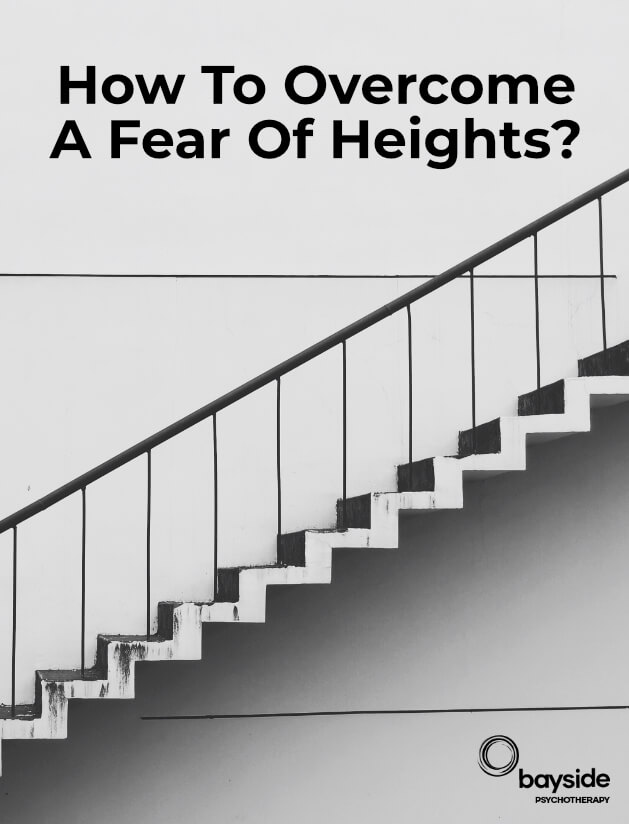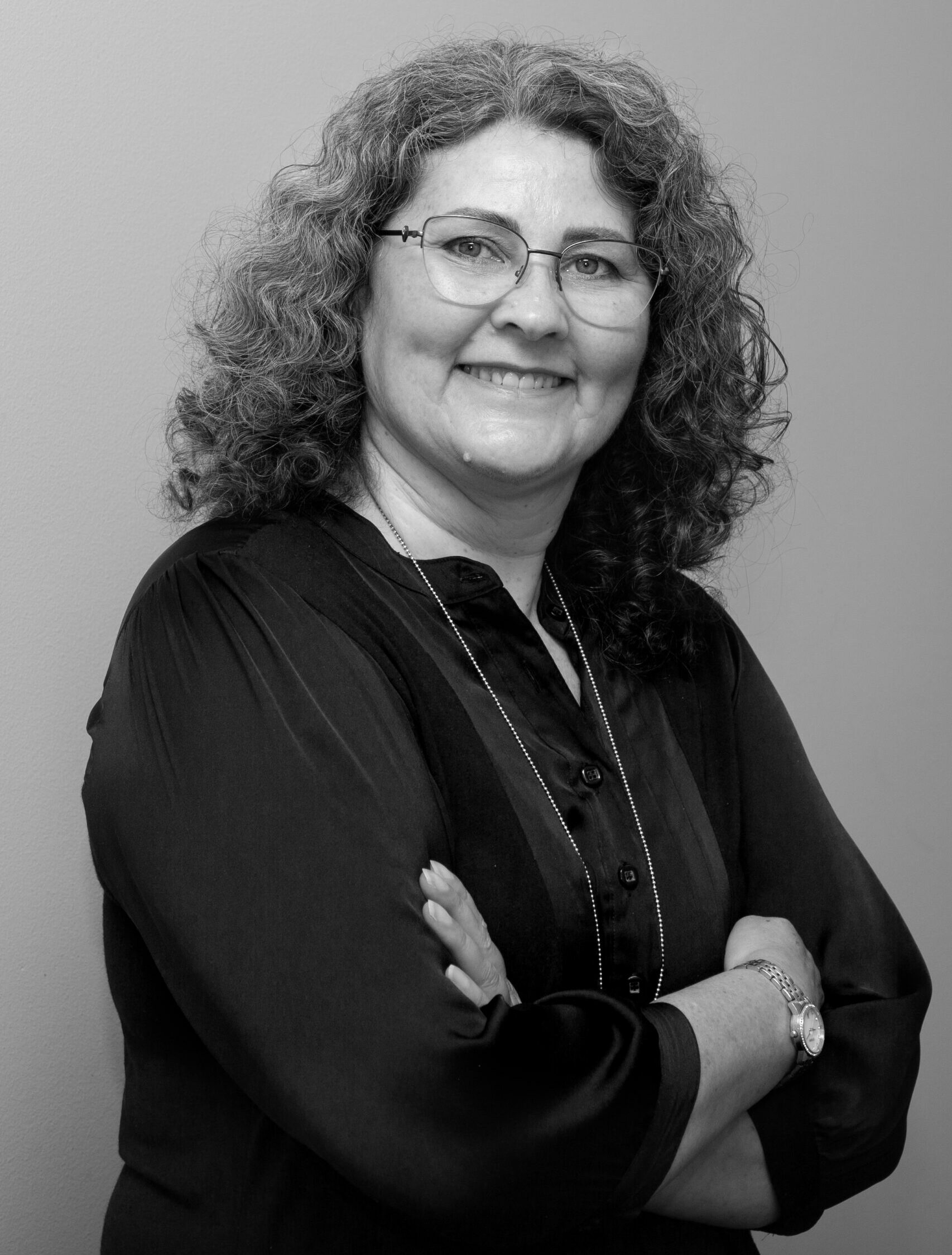
Do you experience an extreme fear of heights, also known as acrophobia? An intense fear of heights can trigger a deep fear or anxiety, even if the situation is safe, like crossing a bridge, riding a glass elevator, or viewing a movie involving scenes of great heights.
It’s natural for humans to have fears of dangerous situations. Especially since falling from a significant height is not an irrational fear and can be fatal. Our brains are wired to avoid such risks. However, this doesn’t mean you should let this phobia of heights control your life.

What Causes Fear of Heights?
We are born with only two innate fears: the fear of loud sounds and the fear of falling, so it’s normal for us to have some reluctance about being in high places. However, for those with acrophobia, the fear is unrealistic and excessive. Acrophobia appears to be a hyper-reaction of the normal fear response. Some believe that this may be a learned response to a previous fall or a parent’s nervous reaction to heights.
Does Acrophobia Go Away?
Acrophobia like many other phobias usually does not go away on its own. With appropriate treatment and intervention, many individuals can overcome a fear of heights. Exposure therapy, cognitive-behavioural therapy, virtual reality treatment (vr therapy), self-help techniques and repeated exposure to heights in safe environments can help individuals with acrophobia to overcome their fears.

What Are The Symptoms Of Acrophobia?
There are many symptoms that people with acrophobia can suffer, below are just a few:
- Intense Fear: Thinking about heights or being in a high place can set off an intense and sudden fear.
- Physical Symptoms: Dizziness, nausea, sweating, trembling, rapid heartbeat, and shortness of breath when exposed or being around heights.
- Avoidance Behaviour: Going out of one’s way to avoid heights or situations involving heights, like refusing to climb stairs, avoiding the use of bridges, and staying away from balconies.
- Panic Attacks: In severe cases, being at a height or just thinking about heights can trigger a full-blown panic attack, characterised by intense fear, heart palpitations, chest pain, and a feeling of detachment.
- Visual Height Intolerance: Difficulty looking down from a height or even seeing others at a height.

What Is Acrophobia Exposure Therapy?
Exposure therapy is a type of therapy specifically designed to help individuals overcome their fear of heights. With gradual exposure to heights can help lessen its hold on a person, therapy can help treat phobias effectively. This method of therapy can be beneficial for those with acrophobia, allowing them to reclaim the joy that this fear might have stolen from their lives.
Even if your fear of heights doesn’t have an effect on your daily life, the freedom of overcoming this fear can open up a world of new experiences. With the right treatment options, relaxation techniques and exposure therapy, you can overcome your fear of heights. With the right forms of treatment you can enjoy sitting on a balcony, hiking up a mountain or even flying.
Recent acrophobia research has shown the effectiveness of virtual reality exposure therapy in treating this specific phobia. By immersing individuals in a controlled virtual environment, they can face their fears in a safe setting, gradually reducing their anxiety symptoms.
Need fear of heights hypnotherapy?
Start Now
How Does Bayside Psychotherapy Treat Fear of Heights?
At Bayside Psychotherapy, our experienced therapists are skilled in a wide range of different counselling methodologies, which we put to use to tailor personalised treatment plans for our clients. Psychotherapy, hypnotherapy, cognitive behavioural therapy (CBT), Neuro-linguistic programming (NLP) and Buddhist psychotherapy are just some of the treatment traditions we may draw on. Mindfulness therapy is another approach that is often applied to treat the patterns of panic and association associated with phobias. At Bayside, we believe a blended, nuanced approach to phobia treatment that can adjust to changing needs is more likely to achieve success than rigid, prescriptive methods.
If you feel you aren’t achieving the results you were hoping for after a few sessions, your therapist may suggest adjustments to your program. At all times, we’ll be responsive to your concerns and opinions, and conduct all sessions in an empathetic, non-judgemental environment. We also offer a self-hypnosis download for acrophobia that may be an effective complement for your therapy sessions.
Call us on (03) 9557 9113 or use our contact form to book your confidential appointment to find out if we can help you work through your fear of heights.
Let’s work together to see if we’re able to get to the bottom of your acrophobia!
How Soon Can You Expect to See Results?
No two individuals react to hypnotherapy and counselling the same way. And, of course, everyone has different underlying reasons for any phobias. It’s difficult to predict what treatment duration will be indicated for a given client. Even the most insignificant anxieties can be rooted in complex internalised trauma, which it’s always best to take time to address. Some have reported feeling some improvement in their panic reactions after a few sessions, while others may need regular, ongoing treatment. Our methods use measurable results, and your therapist will assess your progress regularly and adjust your program if necessary.
It’s worth persisting once you’ve started therapy, as confronting problems and ironing out treatment methods may be an important part of the process. You may even be able to take on new hobbies and go on new adventures you would never have contemplated before their acrophobia counselling.
Call us at our Highett clinic in Melbourne on (03) 9557 9113 or use our contact form to find out more. All calls are confidential and there’s no obligation to proceed. Booking online is also very easy.
Note: Whilst we will do our best to assist you, client commitment to and participation in the treatment process is essential to optimise results. Although some of our therapists work with people presenting with this condition, no guarantees of any outcomes can be made.
Reception Phone Hours
- Monday 8:30am to 5:30pm
- Tuesday 8:30am to 5:30pm
- Wednesday 8:30am to 5:30pm
- Thursday 8:30am to 5:30pm
- Friday 8:30am to 5:30pm
Closed on public holidays
Choose your own date and time for an online or in-clinic session
Therapist Hours
- Monday 8:00am to 8:00pm
- Tuesday 8:30am to 8:00pm
- Wednesday 8:30am to 8:00pm
- Thursday 8:30am to 8:00pm
- Friday 8:30am to 8:00pm
- Saturday 8:00am to 6:00pm
Closed on public holidays








